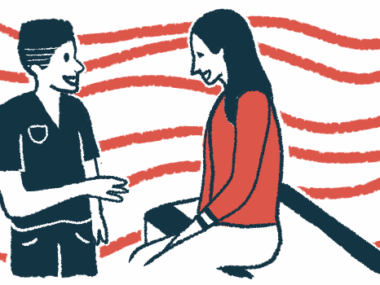Our Good Doctor’s Bold Statements
Written by |

We got the official letter last week. The brilliant nephrologist who saved my husband’s life will no longer see patients at the local office.
He told us at the last appointment that this was coming. It’s a good thing for his career, and we are happy for him. He has been paying his professional dues for years, driving out to the valley each week to monitor the farmers’ kidneys. Now he will join the faculty at the university hospital 45 minutes east of here, on the other side of the mountain.
Meeting the doctor
I think I met him on my husband’s third day in the isolation ward of the regional medical center. But I’m not really sure, as hours become days, and rotating shifts of nameless nurses sort of melt together in the haze of hospitalization. I do remember that I was sleep deprived, rumpled, and disoriented. And my back hurt from long stretches in a recliner while keeping vigil.
A thin, dapper fellow who looked half my age entered the room and took note of my sleeping husband. He asked in a soft voice with an elegant accent, “Are you Mrs. Dixon? May I speak with you out in the hallway?”
A bad first impression
He explained that the team of doctors had stabilized the patient but not yet diagnosed him. They were in agreement that the problem was with the blood and the kidneys. The disorder was somewhere along the spectrum of thrombotic thrombocytopenic purpura and hemolytic uremic syndrome (HUS). He described both conditions, noting that the rest of the team believed it was the former, and more common, possibility.
Then, with what struck me as an atrocious bedside manner, he confidently declared that he thought it was HUS. Perhaps even the atypical version, he said, with what seemed like enthusiasm. He said it was a very rare disease that none of them had ever seen in a patient, but he bet he would be proved right.
Say what?! Did the specialist just tell me he was betting on the diagnosis? Was this a game to him? I shook my head and looked down while I tried to process it all: mysterious Greek medical terms, dueling diagnoses, and a smug bet with my husband’s prognosis as the prize. And then I noticed, in the space between his skinny slacks and Italian leather loafers, a pattern of bright multicolored polka dots woven into his gray socks. Seriously? How was I supposed to take any of this seriously? Every bit of this was madness; I just wanted our sane, healthy life back.
And the winner is …
It turned out Dr. Crazysocks was right. Following our transfer to a big city hospital, numerous blood tests, transfusions, and plasmapheresis, another team of specialists confirmed the diagnosis. Our nephrologist was pretty proud of himself at our first follow-up appointment back home.
Everyone acknowledges that competition brings out the best in athletes and entrepreneurs. Turns out, rivalry may benefit doctors as well. And their patients. I credit this bold diagnosis of aHUS with saving my husband’s life.
In addition, the quick pursuit of treatment for this rare possibility saved his kidneys from the imminent damage that would have tethered that life to dialysis. Thus, we have been grateful and loyal to this doctor’s practice ever since — during which time we have noticed his taste in socks is as daring as his diagnostics.
Decision time
Now we have to decide if we will follow him over the mountain and through the traffic to his new office. Or, we could opt to trust my husband’s continuing care to the next brilliant young thing the university sends to the hinterlands. Whichever we choose, I think we should acknowledge this milestone in our good doctor’s career with a lovely thank-you note. And the goofiest pair of socks we can find.
***
Note: aHUS News is strictly a news and information website about the disease. It does not provide medical advice, diagnosis, or treatment. This content is not intended to be a substitute for professional medical advice, diagnosis, or treatment. Always seek the advice of your physician or other qualified health provider with any questions you may have regarding a medical condition. Never disregard professional medical advice or delay in seeking it because of something you have read on this website. The opinions expressed in this column are not those of aHUS News or its parent company, Bionews, and are intended to spark discussion about issues pertaining to aHUS.







Leave a comment
Fill in the required fields to post. Your email address will not be published.